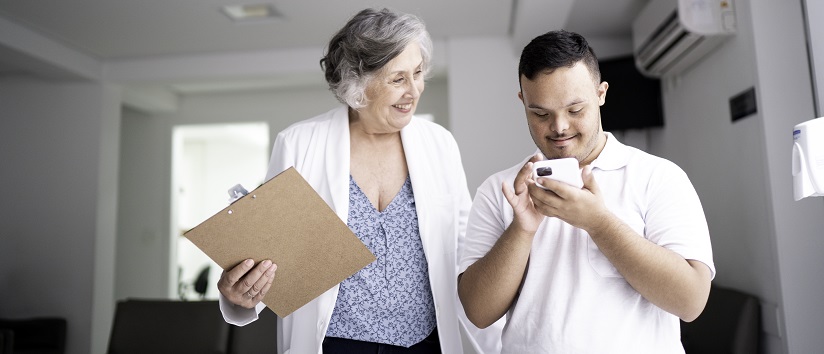
During the Covid-19 pandemic, Learning Disability England helped with a project by the Good Things Foundation, which gave 5,500 people with learning disabilities a tablet, data and support with setting up their new tablet.
A new report has found that this project has helped people feel less lonely and has improved their health and wellbeing.
The Digital Lifeline programme, funded by the the Department of Digital, Culture, Media and Sport, was delivered by Good Things Foundation with AbilityNet, Learning Disability England, Digital Unite and VODG – Voluntary Organisations Disability Group, along with 146 community and coordination partners across England.
During the pandemic, many health services were only available online, and whilst some people with learning disabilities were able to use technology to access these services, many were unable to do so due to barriers such as lack of digital skills, a lack of home support and lack of access to technology or the internet.
This had serious consequences for their physical and mental health. Digital barriers also impacted the extent to which people with learning disabilities were able to connect with others, and access support during the pandemic. This reduction or removal of support increased social isolation and uncertainty, and contributed to increased feelings of loneliness.
Digital Lifeline was an emergency response to a clear and pressing need.





